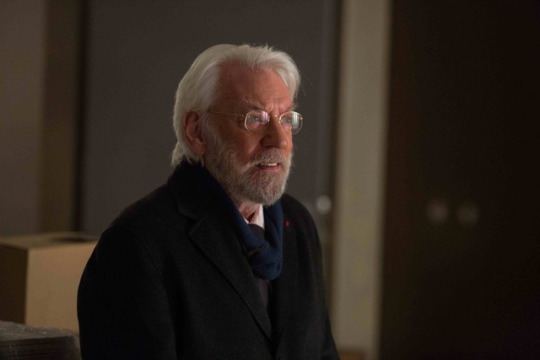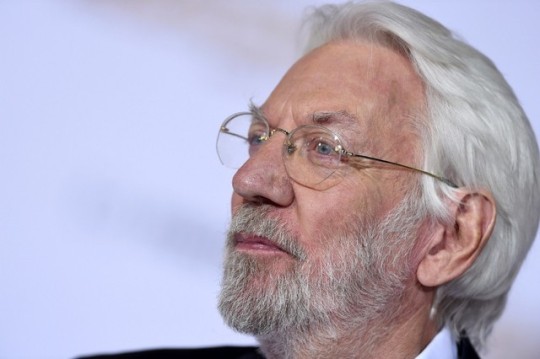Jonathan K. Rutledge Sr. Associate Justice of the Supreme Court "There's a value in having secrets. Creatures like myself, like Theresa, like Leon, we wouldn't be ourselves without them." Primary Character.
Don't wanna be here? Send us removal request.
Quote
Tonight we strengthen our resolve that America will never be a socialist Country.
DJT. (via. Associated Press/AP)
1 note
·
View note
Quote
That was a demonstration of knowledge, the stakes were nothing. This is about my power, the stakes are everything.
MP. Jessica Pearson. (via diane-payne)
13 notes
·
View notes
Photo
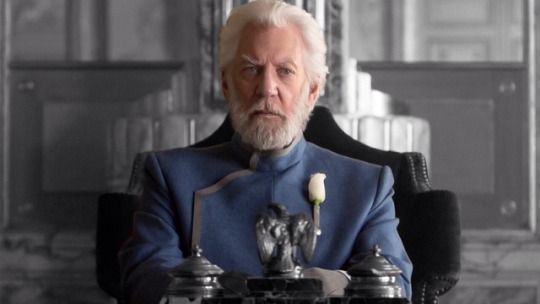
21 notes
·
View notes
Quote
Even the smallest person can change the course of the future.
Thelandria; Attos of the City of Fern (via thelandria)
2 notes
·
View notes
Photo

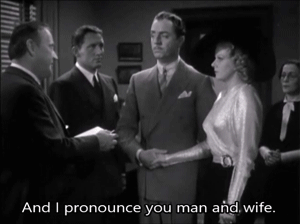


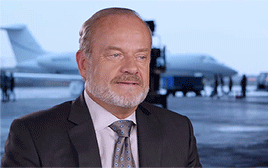

The Maze of Character | Chief Justice | Challenge 003
I. President Snow (The Hunger Games) → “Hope, it is the only thing stronger than fear. A little hope is effective, a lot of hope is dangerous. A spark is fine, as long as it’s contained.”
President Snow possessed a totalitarian ambition that subdued a continent of people for seventy years, biting wisdom, and a knack for reading people, all of which reflects in Jonathan’s political disposition. Socially conservative, Jonathan views society as a pyramid scheme in which wealth and power is controlled by a minority that bears responsibility for society’s direction. There are few instances in which the Chief Justice stepped into the political limelight because, like President Snow, he is keen on operating in the background – advising a carefully placed donation or painting a catastrophic consequence to liberal agendas.
II. William J. Spencer Jr. (Bold & the Beautiful) → “You’re my daughter, Caroline…ever since your mother died—no one else matters in my life.”
William J. Spencer is reminiscent of Jonathan insofar as they are men devoted to their families. There is no length to which they would not traverse in the name of protecting and advancing its interests. When his elder brother Malcolm passed in March of 1994, Jonathan began to see himself as the sole protector of the Rutledge Family as the last remaining son of their generation. To instill the value of tradition and character is Jonathan’s foremost motivation, second only to his devotion to the Supreme Court. As such, like William Spencer, he possesses a religious zeal for the Rutledge Family’s future generations.
III. James Madison (War of 1812) → “The essence of Government is power; and power, lodged as it must be in human hands, will ever be liable to abuse.”
A source of admiration for Jonathan that exceeds the ordinary; Madison’s intelligence, democratic philosophy, and contrite personality are aspects that he consciously aspired to emulate as a young Justice on the bench. The most neutral of Jonathan’s influencers, Madison inspires in the Chief Justice a fervent abhorrence of abusing the Power of the Supreme Court. In his thirty-five years upon the bench Jonathan’s interests in Rutledge Corporations have been stored in a blind trust under the conservatorship of his eldest son; a great source of Pride for a man who seeks to emulate the impeccable altruist that Madison had been.
IV. Cyrus Beane (Scandal) → “You may be an animal but I am a monster…and I am much more terrifying than you could ever imagine.”
There are few players in Washington with a more profound understanding of the chess board than the Chief Justice, and although the descent of his Prime is long past, he likes to think of his political prowess as a looming shadow. In the hierarchy of America’s capitol and keeping with Jonathan’s view of society as a pyramid scheme; freshmen congresspersons, executive and judicial staff comprise the low rung meant for political novices. Senior congresspersons, Cabinet members and associate Justices of the Supreme Court comprise the middle rung meant for political animals; the people that have poured blood, sweat, and tears into every ounce of political capital earned in their experience. The President, Speaker of the House, Senate Majority Leader, and Chief Justice comprise the top rung designed for political monsters; the very people that lead America’s three branches of government. Jonathan places great emphasis upon this perspective of Washington and, through experience, understands the true meaning therein.
V. Tom Kane (Boss) → “The illusion of change is a good thing. Gives the people a jolt of hope. Makes them believe in the possibility of things…what we need is the illusion of change on the surface, continuity underneath.”
Tom Kane was the Mayor of Chicago for nearly as long as Jonathan has served on the Supreme Court and represents an influence that veers to the right of Madison’s insofar as Kane was the sort of man to abuse the power held sacred by the Founders. Jonathan would never abuse the authority of the Supreme Court; however, he would manipulate the wealth and prestige of the Rutledge Family to suit his objectives. This influence is especially powerful when he feels he must protect the Family, which translates, politically, into protecting the interests of the propertied class. He has never shied from the opportunity to advise his sons and nephews on political donations, fundraising charities, and corporate strategy. In keeping with the influences of President Snow and Cyrus Beane, Kane inspires within Jonathan a desire to restore conservatism and tradition to the forefront of American politics.
VI. John Ross Ewing Sr. (Dallas) → “Damn it! I am not an invalid. The day I start taking orders from anybody is the day they bury me.”
Finally, John Ross Sr. represents Jonathan’s inevitable descent from Power. JR was stubborn, recalcitrant, and above all in denial of his shrinking capabilities, all of which reflects within Jonathan. The system is not designed to cleanse itself of someone that refuses to relinquish power, and yet, the inevitable is inescapable. Alzheimer’s will begin to permeate every morsel of Jonathan’s life; it will begin to gnaw upon his ability to remember, hack away at his ability to speak as cohesively as he thinks he should, and singlehandedly torch the prestige of his legacy. His denial shall become the looming shadow he imagines his political prowess to be, until it is too late. By then, Jonathan will be swept asunder by the Public’s acknowledgement of his paralysis. When that time comes, like JR Ewing, he shall shout, “I am not an invalid. The day I start taking orders from anybody is the day they bury me,” as he is removed from the bench.
#[ iii. ] : influential forces.#[ iv. ] : character challenge.#cbcchallenge#i particularly enjoyed this challenge lol
1 note
·
View note
Note
In terms of interpretation of the Constitution, would you consider yourself a textualist or an originalist?
Originalism and textualism, in terms of constitutional interpretation, are synonymous. In my first year on the bench my mentor, Chief Justice Warren Burger said to me, “non-originalism allows too much room for Judges to impose their subjective values upon an eternal institution,” thereby implying that the sole legitimate method of interpretation was originalism. A colleague on the bench, Associate Justice Lewis Powell, counterclaimed that the Constitution was a “living document,” offering the premise that if lawmakers were tasked with legislating amendments then the Court was tasked with acknowledging amendments as pragmatic changes to fit the Times. Originalism and textualism are two sides of the same coin—the legal opposite of originalism is non-originalism, of which pragmatism is the flip-side of that coin.
I argued against Powell’s premise with a premise of my own. The framers of our Constitution—our Founding Fathers—intentionally employed implicit language in some clauses and explicit language in others; their meaning is fixed and immutable, and I am skeptical of any Judge’s ability to determine their collective intent. It is logically impossible to determine the intent of the Framers irrespective of what was written in the Constitution! Therefore, when interpreting, it is my prerogative to examine Constitutional text and structure, prior judicial precedents, and higher natural law. I believe this method compels legislatures to reconsider and repeal their ineffective laws instead of relying upon the Court to invalidate them. If lawmakers understand the Constitution as a binding contract between the Government and its People, framed to define their relationship with no room for interpretation outside of the Text, then our authority as a Government is preserved. Can you imagine a federal government that amends the Constitution at-will and Justices that interpret amendments based upon popular sentiments of the ‘Times?’ That is a recipe for disaster and of such our Founding Fathers were aware. The Supreme Court is a safeguard, on behalf of the People, to ascertain that the Law changes to promote the greater good for all persons and remains static in instances where that is not the case.
I experienced a Moment of Truth during my first year on the bench in the form of EEOC v. Wyoming, 460 U.S. 226, of 1983. According to the Commerce Clause of our Constitution the United States Congress retains enumerative Power over commerce between States, and in this case the question was whether Congress violated States’ Rights by holding the Age Discrimination and Employment Act applicable to State and local governments. In other words, we were asked to examine Congressional imposition of fair and nondiscriminatory regulation upon the States. During opening arguments, I leaned against the notion that Congress acted constitutionally in this regard because the Constitution explicitly limits Congressional power to commercial activity between States—regulations protecting citizens within the border of a State falls to the sovereignty of its government. Is it morally justifiable to discriminate upon an employee based on Age? Perhaps, not. However, it is not a Power bestowed upon Congress by the Constitution to install regulation, on behalf of the States, protecting employees based on age. Therefore, I argued that if the Age Discrimination and Employment Act was to be held applicable to the State of Wyoming then the Government of the State of Wyoming was legally bound to install a provision into its legislature. In so doing I “safeguarded the enumerative Powers of the States in juxtaposition with the enumerative Powers of Congress. Congress is empowered to regulate commerce between States, States are empowered to write laws protecting the fundamental rights of its citizens.” I neither deviated from the original text of the Constitution nor prior judicial precedents, as defined by my originalist pretext.
Why did I choose that premise, you may ask? The answer is simple. The Constitution does not say, “Read me broadly,” or “Read me narrowly,” the decision to do one or the other is a matter of political theory contingent upon one’s view of judicial legitimacy and competence. I perceive myself as a caretaker—a steward of the Republic—and the competence of the Judiciary rests squarely upon preserving the supremacy of Law. No one is above the law, not you, not I, not the President of the United States, not the Senator you elected to Congress—I have always believed it my inherent duty to protect that sacred truth.
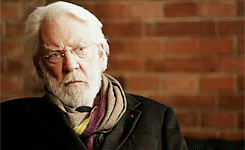
#[ q. ] : pillars of power and queue.#[ xii. ] : judicial & political theory.#i thoroughly enjoyed this question; please offer more legal-centric questions to our chief justice!#someone wrote this for him as well; jon has trouble remembering what he had for breakfast there's no way he remembers the 80s
6 notes
·
View notes
Quote
The wolf is carnivore incarnate and he’s as cunning as he is ferocious; once he’s had a taste of flesh then nothing else will do.
Angela Carter, from ‘The Company of Wolves’ (via priinceling)
744 notes
·
View notes
Photo


5 notes
·
View notes
Text
A Moment of Silence | Pt. 1 |
SCENE 001: Part 1: “A Moment of Silence.”
February 17th, 2017.
CLEAN ENERGY INITIATIVES. 115th Congress of the United States; House Committee of Energy and Commerce.
Jonathan pored over the President’s aspirations for clean energy, transcribed elegantly onto a sheet of parchment. A tremor of apprehension fluttered in his stomach whenever he thought of Theresa Wright. It was as if he didn’t have to read at all, as if he knew the President would never provide an agenda that served his family’s interests. It amused him, silently, because her directives forced him to operate underground in Washington. His days were bound to devolve into Congressional meetings, Country Club alliances, and boardroom antics—far from the Public Eye. He would invite his son, Jonathan Jr., and nephew, John Jay Jr., to hash out a deal ensuring natural gas and coal remain the Country’s energy focus. It could cost the family millions of dollars. As Jonathan eased the parchment into a brown manila folder and slipped it into the bottom-right drawer of his desk, he thought of a Washington devoid of Theresa Wright entirely. He wouldn’t have to work underground, then.
Leon Solis should have won the election. Jonathan leaned into his Herman Miller chair of charcoal leather and gazed upon the ceiling. How did he lose… He made a steeple of his fingers upon the armrests, feeling himself searching for recollection. And when he couldn’t remember he furrowed his brow. Might she have torn a page from a Tom Clancy novel and rigged the election in her favor? He smirked. Inconceivable…for a Democrat.
The office phone rang and sent a shrill into the silence. Jonathan straightened in his chair and grabbed it.
“Mister Chief Justice, Mrs. Rutledge has arrived,” chirped the administrative clerk.
“I have no doubt she’s left before permission was granted,” he jested, returning the phone to its modem. He hoisted himself from the chair, gently, and turned to spread the thick velvet curtains that cast an impenetrable shadow over the chambre. The high noon sun filtered in. Jonathan caught the grand stone pillars of the Library of Congress in the distance. The American flag rested at the top of the building threaded to a silver pole, and he gazed as it flickered in the stark wintry breeze.
“There you are, darlin’” greeted Savannah on her way into the Office.
Jonathan turned from the window and smiled, “Good morning, sweetheart,” he said, watching her traipse toward the far right wall. A short and petite woman, Savannah seemed taller than five-feet in a pair of alabaster white kitten heels that accented her form-fitted pantsuit. The collar of her blazer was weaved in gold thread that glistened in tandem with an elegant necklace adorned with aquamarines. She expertly removed the glass top of Macallan 25 he reserved for his private chambers and poured them both a glass. “I didn’t expect you to return so soon,” he remarked, inclining his head ever slight as Savannah traipsed toward the desk.
“From breakfast at the Smithsonian?” she asked, narrowing her eyes suggestively before offering him one of the glasses. Jonathan lowered himself into his chair as his wife perched upon the desk. Savannah waved her hand dismissively after Jonathan took the glass, “I went as a courtesy to Elizabeth Henderson—they hosted us in their Hampton Manor on President’s Day and I thought it’d be sweet to thank her properly,” she explained in her singsong tone, stopping to sip the Macallan 25, “I went thinking it would be just the two of us, but she’d invited ten other women, all of them members of her pet charity ‘Relief for Disasters,’” Jonathan laughed quietly, listening closely, but before he could respond Savannah continued, “She said she’d turned our breakfast into a working breakfast. Can you believe it?”
“Of course I believe it, sweetheart, there are only so many hours in a day,” he spoke softly, his smile brightening when Savannah hoisted herself from the desk and claimed one of the two adjacent Hermann Miller chairs.
When she’d settled in, she shrugged her shoulders, “Washington is unpleasant, darlin,” she murmured, finally, “The people here are so busy there isn’t time to smell the roses and enjoy life—Yankee women.” Jonathan nodded, thoughtfully; he felt the same way when the Supreme Court’s monumental weight pressed upon him. Savannah added, “I’ll be pleased when we’re Home this weekend.”
So will I, Savvy. Setting his glass upon the desk, Jonathan lifted the phone from his modem and punched a familiar number. He glanced at Savannah as the phone started to ring, “Have you heard from three-sticks?” he asked, his tone mired in concern. His eldest grandson, Jonathan K. Rutledge III, hadn’t responded to his call earlier that morning. He called three-sticks every morning to check on him, and he always answered. Until that morning. He frowned when the dial tone bled into the voicemail he and Savannah used for their Welbeck Estate.
“Maybe he went for a swim out back,” his wife consoled; she set her glass on the desk.
“He always answers my call…every morning,” Jonathan bristled, glumly, placing the phone onto its modem. When he lifted his gaze to Savannah’s he noticed a scowl on her face, “To tell him how proud I am of him.” Savannah’s hair was coiffed into an elegant ring of dark grey curls around her small face, accentuating her eyes—the same cerulean as Jonathan’s own.
“Have you tried calling Harvey or George Jr.?” she asked, as if she already knew the answer. He inclined his head, gently, as if to confirm his unspoken answer.
“Darlin,’ you’re not supposed to play favorites—with our grandchildren,” Savannah retrieved her idle glass of Macallan 25, “You have as much cause to be proud of George Jr.—why he graduated Cornell just last year.”
“I’m only human, sweetheart,” he responded, lowering his gaze to the desk. How could his wife understand his connection to three-sticks? He was the third of his name, the third Jonathan K. Rutledge. How could he explain that when he spoke with three-sticks in the morning it reminded him of a future both alive and strong? His grandson was, in many ways, as much the pearl inside his oyster as his wife was the oyster. He glanced at his watch. 11:27 AM.
“Yeah, well…promise you will congratulate all our grandchildren during the toast Sunday night,” she edged, downing the remainder of her glass.
“I promise.” Jonathan brought his glass to his lips, suddenly aware that their week in D.C. was soon at an end. They decided to spend the weekend at Welbeck Estate in Oak Ridge. Ever since Savannah had flown into Washington that Monday three-sticks resided alone at the Estate. He felt uneasy about his missed phone calls, but resolved to quietly withhold judgement until they touched ground in North Carolina. Jonathan stood from his chair and eased into the deep navy blue jacket of his Vanquish suit.
“Where’s Stanley?” asked Savannah, who turned curiously to peer behind her.
“He’s waiting for us, now,” Jonathan fastened the top-button of his two-button jacket before prying the manila folder from the lower-right drawer of his desk. He heard a silent crack as he leaned over, followed by a droll ache in his left ankle. Suppressing a groan, he lifted an aluminum briefcase leaned beside the desk, eased it open, and slipped the manila folder inside, “He’ll escort us to Executive Park and accompany us on the flight into Elk Rivers.” He expected them to touch down in North Carolina at 3:00 PM. To depart Washington, too, had ridden him with relief. Relief from the incessant buzzing and twenty-four-hour hums of energy that should earn D.C. the second-city that never sleeps. If he were honest he’d jumped at the chance for a brief respite from it all. “Let’s not keep him waiting, sweetheart,” he said, offering his hand to help her from her seat. Savannah’s hand fit intricately into Jonathan’s, and to their car they went.
A brisk, wintry breeze whorled amidst bare tree branches and silent pillars of marble. Jonathan lead Savannah along the rear steps of the Supreme Court toward their Lincoln town car. A thick canopy of clouds hovered over D.C. like an impenetrable smog, but Jonathan didn’t remember reading anything in the forecasts predicting a storm. The winter snowstorms had been sparse that year.
“Good Morning, Stanley,” greeted Savannah soothingly as she settled into the rear seat. Jonathan lowered into the seat beside her and closed the door, suppressing a sling of pain ricocheting from his ankle to his knee, “You’re a sight for sore eyes—it’s nice to see you.”
“Morning, Ma’am,” Stanley peered at them from the rearview mirror before jolting their car to life. He smiled before peeling away from the sidewalk, veering onto Second Street with ease. After the forty-minute drive to Washington Executive Airpark, a thirty-eight hundred-foot private hangar for jetliners, Jonathan and Savannah would board the family’s Gulfstream G650 into the Elk River Airport fifty-miles north of their Estate in Oak Ridge. Elk River’s forty-six hundred-foot hangar cost them one-point-five million dollars annually, and its value stemmed from the convenience of arranging flights between their Home and America’s Capitol.
“We ought to go over the weekend’s schedule, darlin’,” offered Savannah; she averted her gaze from the frigid brick houses and mullioned entryways to bodegas just south of downtown D.C., and peered at Jonathan, “We’ll have a private dinner tonight—long overdue.”
Jonathan intertwined his fingers with his wife’s, their hands forming a gentle knot between them, “I look forward to it, sweetheart. I have a gift for you,” he teased, a small smile crinkling his leathery-thin pallor. He brought Savannah’s hand to his lips and bestowed a chaste kiss upon it.
A warm smile graced Savannah’s small face, “Tomorrow morning we’ll have breakfast—I know you wanted to meet with the boys afterward, but try not to keep them too long, darlin.’ Malcolm’s branch of the family is scheduled to arrive at one, by then the barbecue will be arranged across the rear lawn. Ah, and then fireworks to cap off the evening.”
Jonathan nodded. The President’s Energy Initiative rang incessantly in his mind, reminding him of the true purpose of their weekend in Oak Ridge. He invited the power brokers and moneymen of his Family; men such as his nephew John Jay Jr. who chaired the multibillion-dollar Rutledge Trilateral Commission, and his grandnephew, Malcolm IV, senior partner of Taft, Rutledge, and Van Dyke and special attorney of the RTC. Together, Jonathan hoped, they would assemble a formidable war chest capable of tackling the President’s ambitions. Against a hostile White House the Rutledge Family would have to employ subterfuge and cunning, and perhaps ruthlessness above all.
As his mind wandered Savannah continued to prattle on, “After breakfast on Sunday I’ll take the girls for tea and luncheon on the Harbor. We’ll return in time for the football game between the boys.” Jonathan grinned. He, too, looked forward to the Family’s traditional flag-football game on the Front Lawn. He remembered his time as a young, hot-blooded male looking to score at the expense of his quarrelsome cousins. Now he was forced to referee, like an invalid, and it reminded him balefully of his grandson. Who hadn’t answered his call that morning.
Savannah continued, “Later in the evening we’ll have dinner at the House—and you’ll give a toast congratulating all of our grandchildren. Lord knows they’ve earned it,” she took a deep breath, peering over at her husband, “We have to make life tolerable for them, Jon—we shouldn’t pressure them.”
“Life would be more tolerable if that woman were not in the Oval Office,” Jonathan remarked, returning his wife’s pleading stare. But Savannah scoffed and tore her hand from Jonathan’s, inclining her head, her cerulean eyes widened with incredulity as if she could not believe Jonathan would turn their conversation into politics.
“Jonathan,” she said in warning, “the President is not your enemy, we have been over this.”
“That woman is a destructive force to Rutledge vision and purpose, sweetheart,” Jonathan soothed, “I’m not angry—I’m…perplexed. How could she have wormed her way into the White House?”
“Darlin,’ you have to let it go…you’ll drive up your blood pressure—we promised each other to take care of ourselves,” She remonstrated, “Even if the President were your enemy, and she is not, how could she threaten us?” She continued, exasperatedly, gesturing around the car. Somehow Jonathan knew she alluded to their walls of protection; the Capital, the Homes, and the Security that they possessed. Savannah pressed on, her tone lowering in finality, “Bury this personal vendetta.”
Jonathan held his wife’s gaze as long as he could, then he peered out of the tinted window. The Lincoln veered left into Washington Executive Airpark, and in the distance, upon the horizon, he could glimpse the hulking alabaster exterior of their Gulfstream G650. It would not be long before they touched ground in North Carolina. It wouldn’t be long before Jonathan spearheaded a meeting designed to draw battle lines against the White House. As Jonathan sat, gazing over the finely garbed young man and young lady—their personal stewards for the flight—the Chief Justice resolved that no one, not even his wife, would stand in his way.
0 notes
Text
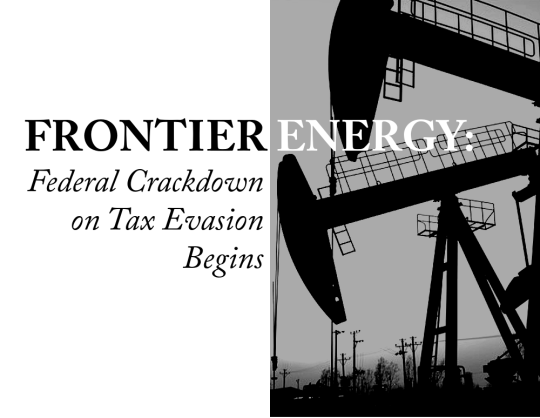
Russell Adams. 10 July 2017. 2:45 PM. Wall Street Journal.
In a revelation bound to shake up Corporate America, the U.S. Attorney for the Southern district of Florida publicly filed charges against Oil Conglomerate Frontier Energy at the start of business today. During the subsequent Press Conference, Acting U.S. Attorney Benjamin Greenberg announced, “The federal government will not allow any corporation, big or small, to avoid its commitment to taxation under Law.” He later explained charges of corporate malfeasance that alleges Frontier Energy defrauded the government by under reporting its profits since December 5th, 2016. The charges launch a federal investigation into the Oil company’s financial statements, which is scheduled to begin when a federal judge authorizes Homeland Security’s detainment of Frontier shipments going in and out of the country.
Florida is a lax State regarding taxation. According to the State’s Bureau of Vital Statistics, Florida maintains a flat-rate tax of 5.5% on businesses annually. That is approximately 27,500 dollars if a business generates 500,000 dollars. ‘Fossil fuel valuations of 2016,’ an industry analysis conducted by the U.S. Department of Energy, claims Frontier generated 518,000,000 dollars in revenues for the year. State taxes would have been upward of 28,000,000 dollars. The State of Florida has not filed charges, suggesting the Company met its tax burden at the state level. However, the evidence begs the question; why would an Oil Conglomerate pay State taxes and evade the Feds? Typically, a Corporation pays Federal taxes and avoids the State. Why? The Federal Government maintains greater resources.
The Brookings Institute, a public-policy think tank, predicted Corporations would circumvent increasing Federal taxes in its Forum on Free Market Economy in April. Brookings Institute Chairman, Byron Chapman, said, “In response to tax hikes many Companies are uprooting and outsourcing operations. While the government believes capital amassed from taxation helps fund it, it actually drains Capital businesses need for growth and expansion.” Federal taxation rates have increased by .8% annually since Obama’s first-term. In July 2015, Federal taxes were fixed at 18%. By July 2016, federal taxes increased to 18.8%. Today, federal taxes in the State of Florida are fixed at 19.6%. 19.6% of 518,000,000 dollars is 101,000,000 dollars. Under current tax regulation, Frontier Energy was legally bound to pay 101,000,000 dollars in addition to the State’s tax of 28,000,000 dollars—a sum of 129,000,000 dollars for the year 2016 alone.
In response to the allegations Frontier Energy released a Public Statement saying, “We will act swiftly to resolve any inconsistencies in our financial records. The Federal Government ought to reinforce its amiability to the Industry by withdrawing its pending freeze of our commercial assets.” Frontier Energy is based in Dallas, Texas, and maintains export/import operations in New York, Massachusetts, and Florida. A federal freeze is predicted to cost the company millions of dollars each day. It is unclear how the company will respond. In addition to federal pressure shareholders will soon demand tighter scrutiny of the company’s activity in what pundits are calling, “A UFC championship match between the Government and Big Business.”
The question of Frontier Energy’s avoidance of federal taxes remains. Why would a company pay State taxes and avoid the Feds? According to crude oil market research conducted by the U.S. Department of Energy, Frontier is worth approximately 800 million dollars. 52 million in taxes, though steep, ought to be available. Even more alarming is its structure as a privately-held subsidiary of Fortune 500 Company Rutledge Trilateral Commission. According to U.S. Tax Code 28.61, “Parent organizations of public or private entities, absolvent of industry or sector, maintain a fiduciary obligation to meet capital shortages of ‘child’ entities.” In other words, the Rutledge Trilateral Commission, which generated approximately 196 billion dollars in revenues in 2016 according to Fortune 500 wealth assessment data, is lawfully bound to assume Frontier’s tax burden if it could not. The Chief Executive of the Rutledge Trilateral Commission, John J. Rutledge Jr., did not respond to request for immediate comment.
With the numbers telling a different story it is likely a federal judge will authorize a freeze of Frontier Energy’s assets until all outstanding taxes are paid. Some say that Corporations have shirked taxation at the expense of the working and middle classes for decades, asserting that it is time bigwig Executives paid their fair share. Conservative pundit Rush Limbaugh commented, “Federal taxes are an outrageous institution designed to rob Peter to pay a million Pauls’ – why not afford hard-working Peter a break? We should not ignore the fact that over the ninety years Frontier Energy has been in business it’s paid three-point-eight billion dollars in taxes. What do we have to show for it? I think the real issue here is careless public spending, folks. Another four years of Obama is what we’ve got.”
Is the motive behind Frontier Energy’s tax avoidance political in nature? In May 2016, Frontier hired Berkshire Hathaway-Miami, a lobbyist and public relations firm, to introduce reform to Florida’s Tax Code. On behalf of Corporate giants such as: Google, Walmart, and Amazon, Berkshire Hathaway lobbied successfully to lower their respective commitments to federal taxation in some States. If the charges filed today by the U.S. Attorney is any indication, Berkshire Hathaway failed to deliver on its promise to reduce taxation in Florida.
There is also evidence from the State Department of Campaign Finance detailing a multimillion dollar donation to Fuel—Directive, a conservative super PAC that campaigned heavily for Republican Presidential candidate Leon Solis. Fuel Directive branded Solis’ platform as in favor of reduced taxes, less government regulation, and the excavation of Fossil Fuels on U.S. soil. Their platform was trumped in November 2016 when the Democratic Party landed a Majority in both Chambers of Congress and Presidential candidate Theresa Wright won the White House. The Democrats are working to backpedal entrenched Republican agendas across the Country with a platform in favor of increased taxes on the wealthy, more governmental regulation, and Clean Energy. Furthermore, the Government does not appear too timid to exercise its full authority over Big Business. Taken into consideration, does Frontier Energy’s tax avoidance send a clear ultimatum to Washington, “either reduce taxes or prepare for a fight in Court?” If so, in keeping with the UFC analogy, the federal government stands to win Round One when it freezes their commercial assets.
Here is a breakdown of what will happen if and when the Federal Judge invokes a freeze of Frontier Energy’s assets:
An immediate shutdown of FE’s Points of Trade:
Port Miami: Owns an eight-thousand-square-foot Facility carrying 42 Freight ships; generated 234,000,000 dollars of revenues in 2016. Primary Trade with Venezuela & Honduras.
Port Everglades: Owns a seven-thousand-square-foot Facility carrying 34 Freight ships; generated 173,000,000 dollars of revenues in 2016. Primary Trade with Dominican Republic & Caribbean Islands.
Port Pompano: Owns a five-thousand-square-foot Facility carrying 26 Freight ships; generated 114,000,000 dollars of revenues in 2016. Primary Trade with Brazil & Chile.
Too early to speculate the potential economic setback of an asset freeze in the region, State records predict an impact, if any, to be minimal. According to a WorldCity analysis of U.S. Census Bureau data, Frontier accounts for 15.35% of trade volume in Port Pompano, 17.50% of trade in Port Everglades, and 23.62% of trade in Port Miami. The data maintains that despite Frontier Energy accounting for considerable economic activity in Florida’s Oil industry, the company’s overall share in Florida’s economy is 1.08%. 45% of Florida’s economy stems from Tourism, which is booming this time of year.
In a statement released to the Public, Frontier Energy pledged to act swiftly in resolving the issue and warned the government to abandon its pending freeze of commercial assets. We have not received responses to comment from Edwin L. Drake VI, Frontier Energy’s CEO, or Jonathan K. Rutledge Jr., Frontier Energy’s CFO. We will continue to pursue requests for comment as we follow the story. One thing is clear thus far, Frontier Energy will either pay its Federal taxes or risk a trial and possible forfeiture of capital assets.
4 notes
·
View notes
Quote
Hope is the only thing stronger than fear
President Snow ---- Mockingjay. (via this1sme)
3 notes
·
View notes
Photo
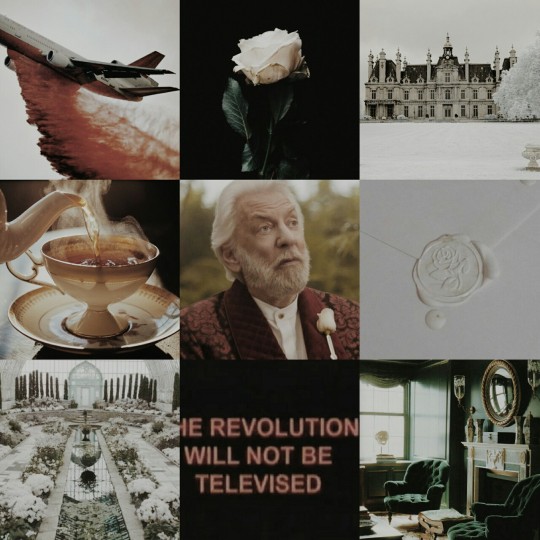
39 notes
·
View notes
Text
The Beltway Boys | Jon & Warren
Tagging → Warren Elkins; Senior Senator of North Carolina.
Time Frame → Friday, February 23rd, 2017. 11:30 AM.
Location → Welbeck Estate, Oak Ridge, North Carolina.
Notes → The Chief Justice & Senate Minority Leader mobilize obstruction to the President’s Clean Energy Initiative.
“Good morning, Mr. Rutledge,” greeted a voice from the main Corridor of the East Wing’s ground floor.
Jonathan lifted his gaze, shutting the manila folder he’d been reading from, “Come in,” he called out in response, leaning into his high-backed Henry Miller chair. His Welbeck Estate private study was aggrandized to his image, with a desk of polished cherry wood enameled with silver, no windows to speak of, and wrap-around cabinets of charcoal Oak lining the walls. For a second he gazed upon the portrait of his forefather, Reuben W. Rutledge, that hung above the door.
“This just arrived for you, sir,” informed one of the Estate’s footmen, who wore finely-tailored charcoal slacks and a crisp, white shirt emblazoned beneath a vest. The Estate employed too many footmen for Jonathan to remember, but he smiled gratefully all the same.
“Who is it from?” asked Jonathan, reaching for the envelope with cautious finality.
“Your son, Jonathan Jr.,”
“Ah…that will be all,” he said, laying the envelop on his desk until the footman whisked from the Study. The Chief Justice peered at it for a moment, and then another. His eldest son, in Monaco negotiating a Real Estate deal with Prince Albert II, had sent their voluminous donation to the RNC right on time. Gently, Jonathan retrieved a mail knife from the upper-right drawer of his desk and slid it beneath the envelope’s fold.
TWENTY-FIVE MILLION DOLLARS AND ZERO CENTS. A small note read; FOR THE REPUBLICAN NATIONAL COMMITTEE.
He perused the receipt of the electronic wire transfer. Twenty-five million dollars were wired through a dummy corporation based in the Cayman Islands, spending twenty-four hours in a Tax haven before transferring to the Canadian National Bank in Montreal. He tore the receipt from its check and eased it into a shredder built into the left corner of his desk. He glanced at his watch. 11:34 AM. It wouldn’t be too long before Senator Elkins arrived. Jonathan stood from his chair and slipped into his Brioni Vanquish blazer, which fitted comfortably atop a stark red turtleneck sweater and pleated black slacks.
As he turned to depart the Study he clasped the envelope. Into the main Corridor of the East Wing he went, the sunlight filtering through its floor-to-ceiling windows a sharp contrast from his dimly lit conclave. He wore padded moccasins that trekked silently upon waxed Oakwood floors, his head held high in pursuit of the foyer that joined the East Wing to West. The foyer was a palatial marvel, adorned with two identical rows of stairs that curled from the door to the upper level. The ancient Etruscan marble was dim, yet illuminated by a bedazzled crystal chandelier hung in the heart of the foyer. Jonathan breezed through the door and onto the Front Terrace, where he would await his dear friend.
The Front Terrace was one of the few parts of the Estate original to its construction in 1848. Eight columns of marble holstered the Main House, demarcating an alabaster white door as the Entrance. From the front, the House’s upper level was a deck barriered by wrought iron gates. Four windows, elegantly spaced apart, were accented with black shutters that rested sublimely upon walls of saffron stone. As Jonathan stood before the entrance, he gazed upon the paved roadway that weaved through two-point-four miles of front grounds space toward Keaton Drive. He glanced at his watch. 11:37 AM.
“Morning, Mr. Rutledge!” shouted Roger Lentworth, the Estate’s head groundskeeper. He swerved around the Main House from the left in one of the Royal Limo golf carts Jonathan reserved for special occasions. Roger wore a pleated Khaki zoot suit, teal golf shoes, and a sterling silver cap that wrapped around his shaggy blond hair. He had pale features; a high forehead, and a strong jaw.
“Good Morning, Roger,” Jonathan said, smiling as the Royal Limo eased to a halt a few paces from the terrace steps, “Where’s Stanley?” His D.C. driver had befriended Roger since taking up residence in the guest House, tailing him like a light in the week since they’ve returned to Oak Ridge. It was jarring to see them apart.
“He decided to stay out back to help with arrangements,” Roger started, turning the key in the cart’s ignition to silence it, “He also said he’d put on a penguin suit and serve,” he finished with a laugh. Jonathan joined him, managing to whisper, “I’ll believe it when I see it.”
The three of them planned to the second his meeting with the Senate Minority Leader. When Warren arrived, Roger would cart them off to the rear grounds space where a six-thousand square-foot golf course awaited. Lunch was to be delivered from the Pavilion that served as the tee for the First hole. Jonathan especially yearned for a cup of spiced hickory tea; partly because it warmed the blood, partly because a cup strategically had at the beginning of each game had won many deals in the past.
Whether he would win the upcoming deal or not, he had no way of foretelling. The President’s joint address to Congress involved new legislation across the board from Education to Healthcare to Public Works. Were Wright’s address under any other circumstances, Jonathan would have remained uninvolved in Capitol Hill’s affairs. But as fate would have it the President was received by a Democratic Majority and thus the means to carry her absurd ideals through Congress. Jonathan scoffed at her segment on clean, sustainable energy, but would have been a fool to underestimate her Power with a Congressional majority – which prompted a meeting with Senator Elkins. If they failed to act swiftly to thwart the President’s ambition the Rutledge Family could lose the eight-hundred-million dollars of revenue Frontier Energy generated each year, which was something Jonathan would not abide. A preliminary twenty-five million dollars ought to set things in motion.
Or so Jonathan hoped, as he stood in wait of an old friend and invaluable ally in ensuring Big Oil trumped the White House.
1 note
·
View note
Quote
He chose money over power; in this town, a mistake nearly everyone makes. Money is the McMansion in Sarasota that starts falling apart after 10 years. But power—power is the old stone building that stands for centuries. I cannot respect someone who doesn’t see the difference.
Frank Underwood. (via. petemoses)
10 notes
·
View notes
